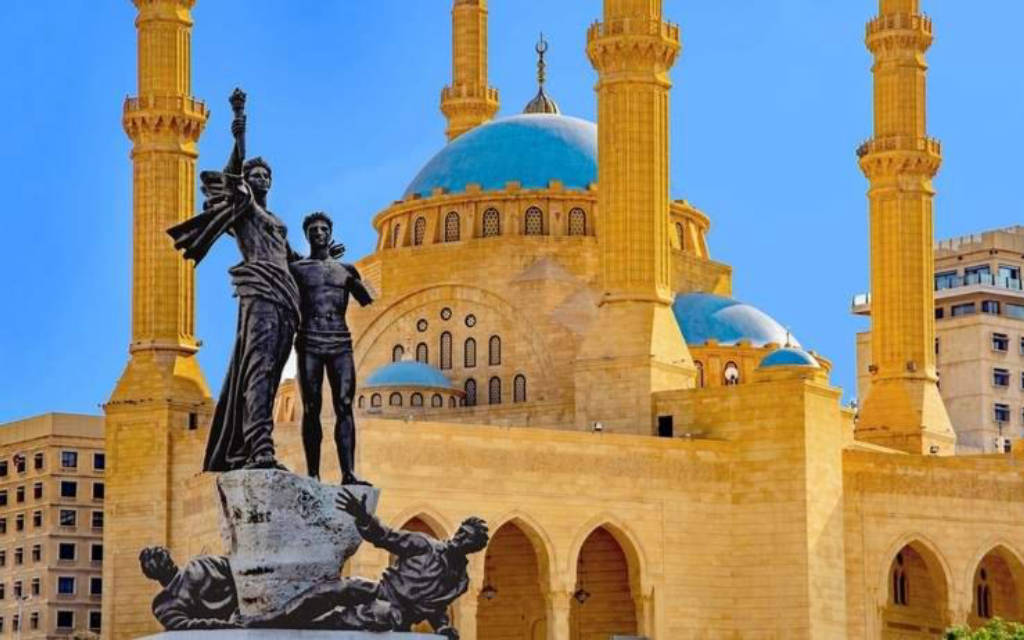Martyr Square, also known as Sahat al-Shuhadaa, is a historic and iconic public space located in the heart of Beirut, Lebanon.
Martyr Square's name is a testament to the numerous sacrifices made by Lebanese people throughout the country's tumultuous history, particularly during the Lebanese Civil War (1975-1990). The square serves as a solemn tribute to the countless martyrs who lost their lives during this turbulent period and in other significant events in Lebanese history.
The square is adorned with monuments and memorials dedicated to various historical figures and events. The centerpiece of Martyr Square is the Martyrs' Statue, an imposing structure that symbolizes the nation's resilience and the sacrifice of those who gave their lives for the greater good. This statue, designed by renowned Lebanese sculptor René Moawad, stands as a potent symbol of national unity and remembrance.
Throughout the years, Martyr Square has witnessed numerous demonstrations, protests, and gatherings that reflect Lebanon's rich tapestry of political, social, and cultural movements. It has played a pivotal role in shaping the nation's collective consciousness, serving as a space for the Lebanese people to voice their concerns, demand change, and express their commitment to their homeland.
Martyr Square has also been a hub of cultural activities and artistic expression. The square often hosts concerts, exhibitions, and other cultural events that bring together Lebanese artists, musicians, and intellectuals. This melding of culture and politics in such a central location reflects the dynamism of Lebanese society.
The architecture surrounding Martyr Square is a blend of modern and historical influences. The square is flanked by iconic buildings such as the Lebanese Parliament, the Grand Serail (the Lebanese Prime Minister's office), and the famous Saint George Hotel. The juxtaposition of modern governmental structures and historic edifices highlights the country's enduring connection to its past while embracing progress and change.
In recent years, Martyr Square has taken on new significance as a focal point for mass protests and demonstrations demanding political and social reform. These demonstrations have been emblematic of the Lebanese people's pursuit of change and accountability. The square has seen waves of protestors advocating for a more just and transparent government, economic stability, and social equality.
Despite the many challenges that Lebanon faces, Martyr Square remains a symbol of resilience, determination, and unity. It serves as a reminder that the sacrifices of the past should not be forgotten and that the quest for a better future should remain a driving force in Lebanese society.
In conclusion, Martyr Square is more than just a physical location; it is a repository of Lebanon's history, a testament to its people's endurance, and a stage for their aspirations.
 Register
RegisterSign in Travel Agent
Sign in Supplier
Sign in Affiliate
Sign in Guru



 VGW4+HV3, Bê-rút, Li-băng
VGW4+HV3, Bê-rút, Li-băng